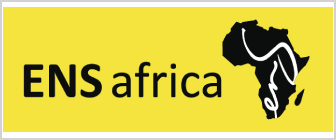The Ministers of Finance for Kenya, Rwanda, Tanzania and Uganda presented their 2016/2017 budgets to their respective parliaments on June 8 2016. Below is a snapshot of some of the key features of each of these budgets.
Kenya
The budget theme was “consolidating gains for a prosperous Kenya” and despite an ambitious increase in revenue targets, tax increases were nominal.
In a bid to address the country’s housing shortage, the corporate income tax rate for companies constructing at least 1000 residential units annually will be decreased from 30% to 20%.
Having remained unchanged since 2001, the graduated tax brackets for Pay as You Earn (PAYE) will be expanded by 10% and resident personal relief is to be increased from KSh13 944 to KES15 360. Bonuses, overtime and retirement benefits paid to employees whose income before the bonus, overtime payments and retirement benefits do not exceed the lowest income tax band (KSh134 164) will be exempt from tax.
Resident withholding tax on rental income has been reduced from 12% to 10%, with effect from January 1 2016, under a simplified tax regime for residential rental income. The budget proposes a minimum monthly threshold of taxable rental income of KSh12 000 for the withholding tax to apply. Following the limited success of the 2015/16 rental income tax amnesty, rules are to be gazetted in terms of which the Commissioner of Domestic Taxes may appoint withholding tax agents for rental tax to ensure compliance by landlords.
VAT exemptions are to be extended to include, among others liquefied petroleum gas, services offered by tour operators on commission, entry fees into national parks and taxable supplies for direct and exclusive use for the construction of recreational parks and specialised hospitals with accommodation facilities.
Non-residents without a fixed place of business in Kenya and who are required to register under a tax law must now appoint a tax representative in Kenya. Failure to do so will result in the Kenya Revenue Authority appointing one.
An amnesty has been introduced for those earning taxable income from investments outside Kenya, provided they submit their returns for the 2016 year of income by December 31 2017. This is aimed at Kenyans who own assets and businesses outside of Kenya and who are willing to repatriate income from these investments to Kenya.
The period for applying for a refund for a tax overpayment (other than VAT) is increased from one to five years.
Rwanda
A key initiative for 2016/17 is the construction and launch of Kigali Innovation City, which is geared at further developing the country’s information and communication technology (ICT) sector for exporting high-value products and services. Another key initiative is the operationalisation of the Kigali Convention Centre to boost meetings, incentives, conferences and exhibitions tourism.
To remain an attractive foreign investment destination, international companies headquartered in Rwanda with minimum investments of $10-million will receive full income tax exemption. Companies not headquartered in Rwanda that have investments exceeding $50-million will receive a seven-year tax holiday.
A reduced income tax rate of 15% will apply to priority sectors, including exports, manufacturing, energy, tourism, transportation, and ICT. An increased investment allowance of 50% is to be granted to all qualifying investments (minimum duration of three years) exceeding RF30-million.
Capital gains tax at the rate of 5% will be introduced on the disposal proceeds of immovable property (excluding affordable residential properties and inherited immovable property). It has been proposed that taxpayers be required to submit transfer pricing documentation with their annual corporate income tax returns and maintain a transfer pricing policy detailing all transactions with related entities.
Tanzania
A key aim of Tanzania’s budget is to further increase funding for development projects, with 40% of the budget to be spent on implementing such projects.
The margining tax rate for individuals on the lowest tax band (monthly income of between TSh170 000 and TSh360 000) is to be reduced from 11% to 9%, and the skills and development levy rate is to be reduced from 5% to 4.5%.
Gains on the disposal of shares listed on the Dar es Salaam Stock Exchange will no longer be exempt. Currently, the exemption applies to residents, as well as non-residents who own less than 25% of the share capital.
VAT exemptions are to be extended to include raw soya beans, unprocessed vegetables and unprocessed edible animal products, vitamins and food supplements, water treatment chemicals, bitumen products and aviation insurance. However, VAT is to be levied on specified tourism services and fee-based financial services (excluding interest paid on loans).
Uganda
The theme for the Ugandan budget was “enhanced productivity for job creation” and focuses on enhanced productivity and production, strategic infrastructure development, skills development and improved governance.
The carry forward of tax losses is to be limited where there is a 50% or more change in the underlying ownership of a company, unless the company continues to carry on the same business.
Withholding tax on rent paid to non-residents is to be introduced at a rate of 15% and stamp duty on the transfer of property is to be increased from 1% to 1.5%.
It is proposed that the benefits of double tax treaties be limited to the beneficial owners of the income earned, who have the full and unrestricted ability to enjoy the income and determine its full uses and who have economic substance in the country of residence.
VAT relief is to be introduced for contractors on aid-funded projects, and the supply of goods and services to contractors of solar power, wind and geothermal energy are to be exempt from VAT.
Celia Becker
Executive
ENSafrica
About the author
Celia Becker is an executive at ENSafrica, and an expert in Africa regulatory and business intelligence. She specialises in large multi-nationals expanding into Africa in terms of investment and business regulations.


